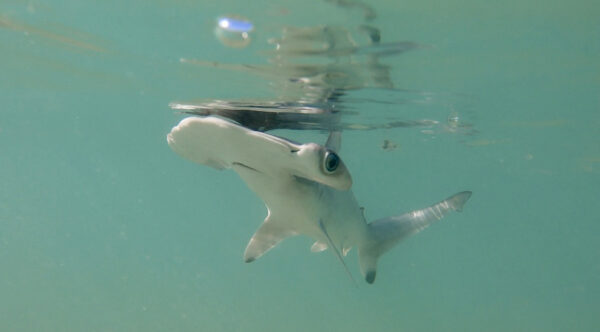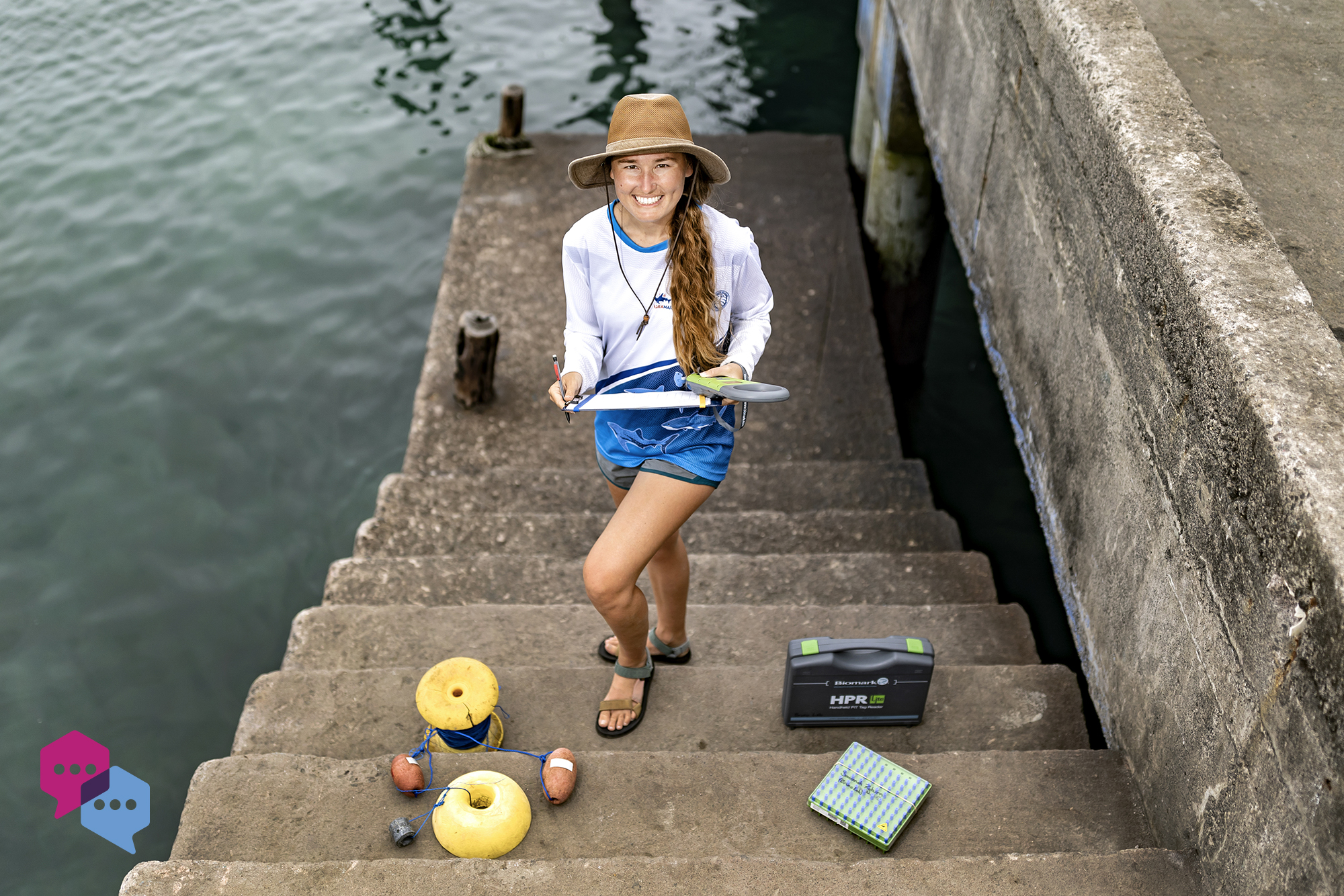Savannah Ryburn is a PhD student in the Environment, Ecology, and Energy Program within the UNC College of Arts and Sciences and a graduate student researcher within the UNC Center for Galapagos Studies. She studies the diet and ecology of sharks in the Galápagos and North Carolina by conducting DNA analyses on their fecal matter to determine what they’ve eaten down to the species level.
Q: How did you discover your specific field of study?
A: I grew up on the coast of Florida kayaking in the mangroves and always going to the beach. I think that instilled a lifelong love and appreciation for the ocean. I always knew I wanted to be a scientist, but over time and through many different experiences with fieldwork I found my niche.
Q: Academics are problem-solvers. Describe a research challenge you’ve faced and how you overcame it.
A: Having a critically endangered species like the scalloped hammerhead shark as one of my study species — and finding and capturing the animals to collect samples from. In general, they are skittish and extremely rare because their populations are continuing to decline due to overfishing, climate change, and habitat destruction. Additionally, my study focuses on juvenile scalloped hammerheads, and little information is known about this life stage. In the Galápagos, we’ve only found three mangrove bays in the entire archipelago that are scalloped hammerhead nursery habitats.

A scalloped hammerhead shark. (photo courtesy of Savannah Ryburn)
To collect my samples, I must capture the shark, complete a quick two-minute work-up, and then release it back into the water. I’ve had many field days where I don’t catch any animals — a problem I try to solve using many methods of fishing. When I first started working in the Galápagos, we would use nets to capture the sharks, but this restricted my field site to the shallow part of the bay comprised of mostly newborns. After doing a lot of research, I worked with local fishermen to create small free-floating buoys with un-barbed hooks on the end. This gave me access to the entire bay, and I began catching larger juvenile scalloped hammerheads. Before this, we had no idea they were also residing there.
Q: Describe your research in five words.
A: Fecal forensics: unlocking shark diets.
Q: Who or what inspires you? Why?
A: Conservation and the opportunity to learn more about the world we live in. Not only do I get to work with a critically endangered species, but I have the privilege of studying a species few people ever get to see. I hope that my research makes a positive impact on the conservation of scalloped hammerhead sharks.
Q: If you could pursue any other career, what would it be and why?
A: I can’t imagine myself with a different career, but if I had to choose: a wildlife photographer. Growing up, I was always inspired by National Geographic photographers and their adventures.


